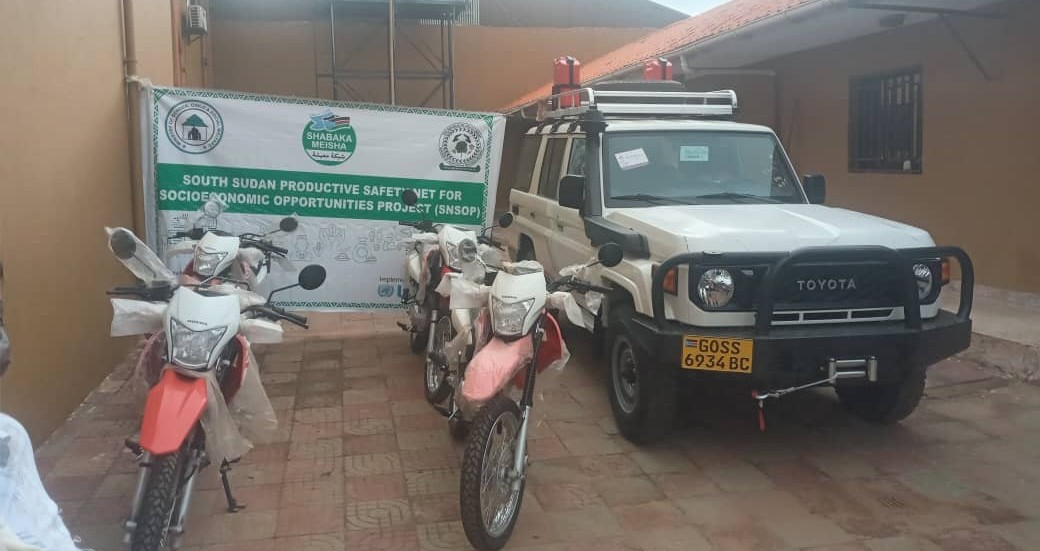
Assets worth $100,000 have been handed over to the Commission for Refugee Affairs (CRA) to enhance coordination and support refugee programs in Pariang, Maban, and Juba.
These included a Toyota Land Cruiser Hardtop, four motorbikes, office furniture, printers, laptops, projectors, and office space.
The Ministry of Agriculture and Food Security (MAFS) and the Ministry of Gender, Child, and Social Welfare (MGCSW) facilitated the transfer, marking a significant milestone in efforts to improve the operational capacity of the refugee commission.
Speaking during the handover ceremony, Bol John Akot, Commissioner of Refugee Affairs, emphasized that the resources would significantly improve coordination and efficiency in refugee-related activities.
He acknowledged the economic challenges the country faces and expressed gratitude for the support, stating that these assets would ease the commission’s work.
“You know our situation very well. With this support, it will be easier to coordinate activities and improve our efforts in serving refugees,” Akot said.
He further highlighted that the newly acquired resources will be used for office operations, with the hope of enhancing collaboration and response efforts in refugee communities.
On his part, Loro George Leju, Director General at the Ministry of Agriculture, reaffirmed the ministry’s commitment to ensuring refugees engage in farming activities to achieve self-reliance.
He urged officials at the Refugee Commission to handle the assets responsibly to ensure their long-term effectiveness.
The asset handover marks a key milestone in the Shabaka Meisha Project, a nationwide initiative first launched in August 2023 with funding from the World Bank.
The program aims to reduce vulnerability and strengthen resilience among South Sudanese households through institutional capacity-building and social protection measures.
As part of the South Sudan Productive Safety Net for Socioeconomic Opportunities Project (SNSOP), commonly known as Shabaka Meisha or “Livelihoods Net,” the $199 million, five-year World Bank-funded initiative is designed to provide cash transfers and income-generating opportunities to 1.1 million individuals in 157,500 households across 20 counties in South Sudan.
Implemented by MAFS and MGCSW, the project integrates labour-intensive public works, behavioral change training, and structured cash transfer programs to improve livelihoods and strengthen the National Safety Net Delivery System.
This latest contribution to the Refugee Commission underscores the government’s ongoing efforts to enhance institutional capacity and social protection for refugee communities while fostering long-term stability and self-reliance.

